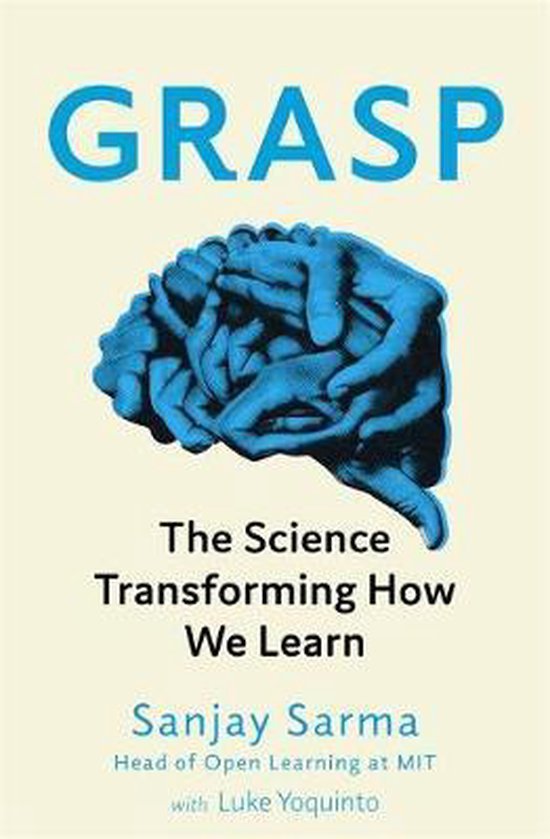De Boeken van Wouter
Grasp The Science Transforming How We Learn
Grasp The Science Transforming How We Learn
Impossible de charger la disponibilité du service de retrait
Verzending is beschikbaar op maandag en vrijdag
Meestal verzonden binnen 1–4 dagen na bestelling
4 boeken kopen = 3 betalen
Gratis verzending vanaf €25
Titel: Grasp The Science Transforming How We Learn
Schrijver: Luke Yoquinto
Bindingswijze: Paperback
EAN: 9781472139115
Conditie: Goed
Let op: Hieronder staat een algemene beschrijving van hoe wij onze conditietypes classificeren. Als u een nauwkeuriger beeld wilt of specifieke vragen heeft, stuur ons dan een bericht en we kijken het graag voor u na.
Conditie-omschrijvingen:
- Als Nieuw: Nauwelijks gebruikssporen, bijna als nieuw.
- Goed: Kan lichte gebruikssporen vertonen, zoals wat verkleuring of een naam op de schutbladen, maar doorgaans geen onderstrepingen of aantekeningen in de tekst.
- Redelijk: Boek in redelijke staat. Kan gebruikssporen vertonen, zoals verkleuring, leesvouwen in de rug, onderstrepingen, aantekeningen, lichte vervuiling aan de randen, ezelsoren of een kromme rug.
- Nieuw: Boek is nieuw.
Beschrijving:
In the spirit of Thinking, Fast and Slow, a groundbreaking look at the science of learning -how it's transforming education and how we can use it to discover our true potential, as individuals and across society by a renowned MIT professor.
'An amazing book... The authors provide an overview of the neural and cognitive processes that support learning...They make a convincing case that students have an amazing capacity to learn' - Robert A. Bjork, Distinguished Research Professor of Psychology, UCLA
As the head of Open Learning at MIT, Sanjay Sarma has a daunting job description: to fling open the doors of the MIT experience for the benefit of the wider world. But if you're going to undertake such an ambitious project, you must first ask: How exactly does learning work? What conditions are most conducive? Are our traditional classroom methods - lecture, homework, test, repeat - actually effective? And if not, which techniques are?
Grasp takes readers across multiple frontiers, from fundamental neuroscience to cognitive psychology and beyond, as it explores the future of learning. For instance:
· Scientists are studying the role of forgetting, exposing it not as a simple failure of memory but a critical weapon in our learning arsenal
· New developments in neuroimaging mean it is possible to identify children who might benefit from specialised dyslexia interventions - before they learn to read
· Many schools have begun converting to flipped classrooms, in which you watch a lesson at home, then do your 'homework' in class
Along the way, Sarma debunks long-held views such as the noxious idea of 'learning styles,' while equipping readers with a set of practical tools for absorbing and retaining information across a lifetime of learning. He presents a vision for learning that's more inclusive and democratic - revealing a world bursting with powerful learners, just waiting for the chance they deserve.
Drawing from the author's experience as an educator and the work of researchers and educational innovators at MIT and beyond, Grasp offers scientific and practical insight, promising not just to inform and entertain readers but to open their minds.
'Sarma's book may be the most important work on education written this century' - Skeptic
As the head of Open Learning at MIT, Sanjay Sarma has a daunting job description: to fling open the doors of the MIT experience for the benefit of the wider world. But if you're going to undertake such an ambitious project, you must first ask: How exactly does learning work? What conditions are most conducive? Are our traditional classroom methods - lecture, homework, test, repeat - actually effective? And if not, which techniques are?
Grasp takes readers across multiple frontiers, from fundamental neuroscience to cognitive psychology and beyond, as it explores the future of learning. For instance:
· Scientists are studying the role of forgetting, exposing it not as a simple failure of memory but a critical weapon in our learning arsenal
· New developments in neuroimaging are helping us understand how reading works in the brain. It's become possible to identify children who might benefit from specialised dyslexia interventions - before they learn to read
· Many schools have begun converting to flipped classrooms, in which you watch a lesson at home, then do your 'homework' in class
Along the way, Sarma debunks long-held views such as the noxious idea of 'learning styles,' while equipping readers with a set of practical tools for absorbing and retaining information across a lifetime of learning. He presents a vision for learning that's more inclusive and democratic - revealing a world bursting with powerful learners, just waiting for the chance they deserve.
Drawing from the author's experience as an educator and the work of researchers and educational innovators at MIT and beyond, Grasp offers scientific and practical insight, promising not just to inform and entertain readers but to open their minds.
Share

